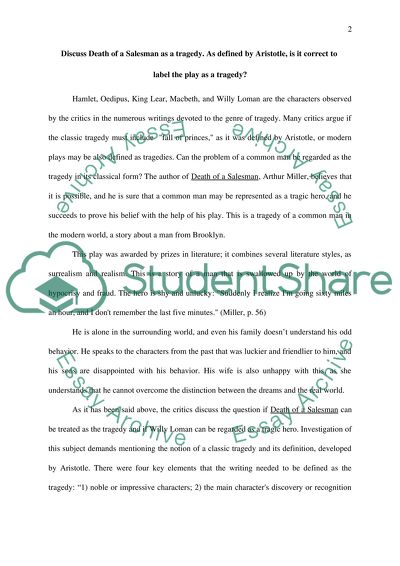Cite this document
(“Death of a Salesman as a tragedy Book Report/Review”, n.d.)
Retrieved from https://studentshare.org/miscellaneous/1512584-death-of-a-salesman-as-a-tragedy
Retrieved from https://studentshare.org/miscellaneous/1512584-death-of-a-salesman-as-a-tragedy
(Death of a Salesman As a Tragedy Book Report/Review)
https://studentshare.org/miscellaneous/1512584-death-of-a-salesman-as-a-tragedy.
https://studentshare.org/miscellaneous/1512584-death-of-a-salesman-as-a-tragedy.
“Death of a Salesman As a Tragedy Book Report/Review”, n.d. https://studentshare.org/miscellaneous/1512584-death-of-a-salesman-as-a-tragedy.


